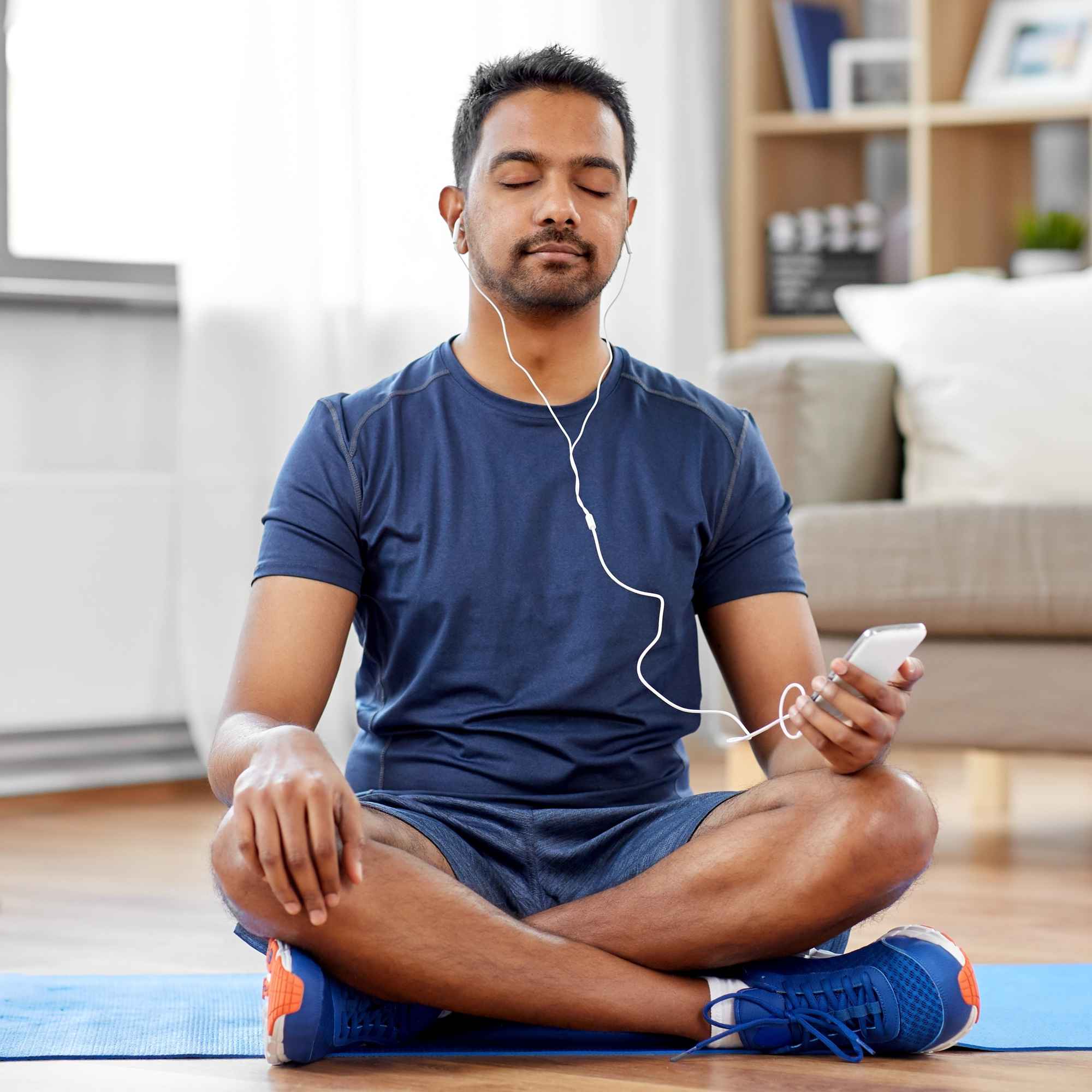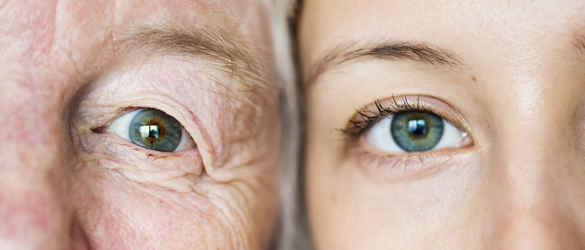
Living with sight loss: mental wellbeing
Living with sight loss affects more than just your vision. It can have a deep and lasting impact on your emotional wellbeing too.
Whether you’re adjusting to life with macular disease yourself, or supporting a loved one through it, it’s important to acknowledge the mental and emotional challenges that come with the journey. You're not alone, we have lots of support available.
The emotional impact of sight loss
Losing your sight, even partially, can be life changing. Everyday tasks that once felt effortless may now take more time or require help.
This shift can affect your sense of independence and confidence. You may find yourself relying more on others, which can feel frustrating or even overwhelming.
For many people with sight loss, emotional struggles such as sadness, anxiety and anger are common. And it’s not unusual to grieve for the life you had before your diagnosis.
You may experience depression or feelings of isolation, especially if activities you once enjoyed become more difficult or inaccessible.
But it's not only those directly affected who feel the strain. Carers, family members and close friends may also experience emotional challenges.
Watching a loved one struggle can bring feelings of helplessness, and the extra responsibility can lead to stress, exhaustion or even burnout. It’s important that everyone involved is supported, not just the person with sight loss.
You’re not alone – support is available
It’s okay to ask for help. In fact, reaching out is often the first step towards feeling better.
Whether you’re living with macular disease or caring for someone who is, you don’t have to face this journey alone.
Talking to others who understand what you’re going through can be incredibly powerful.
That’s why our support groups can be such a lifeline. Sharing your experiences and listening to others can provide comfort, perspective and practical advice.
Counselling is another valuable resource. A trained professional can help you process emotions, build coping strategies and navigate difficult times.
And for carers, there are support networks specifically designed to help you manage the emotional toll of your role. Your wellbeing matters too.
Self-care tips for mental wellbeing
Taking care of your mental health starts with small, manageable steps. And it’s important to remember that self-care can look different for everyone.

If you’re living with sight loss, consider:
- Exercise: Staying active can boost your mood and reduce stress. Activities like walking, yoga or even chair-based exercises can be adapted to your needs.
- Mindfulness and meditation: Taking time to slow down, breathe and be present can help manage anxiety and improve emotional resilience.
- Keeping a routine: A regular daily structure can create a sense of stability and purpose, especially during times of change.
If you’re a carer, your wellbeing is just as important. Try to:
- Recognise and manage stress: Take breaks when you can. Even short pauses can make a big difference.
- Set boundaries: It's okay to say no sometimes. You can’t pour from an empty cup.
- Seek moments of rest: Whether it’s a walk, a hobby or simply a quiet cup of tea, find what helps you recharge.
- Ask for help: You don’t need to do everything alone. Lean on friends, family and support services.
Services we offer at the Macular Society
At the Macular Society, we understand the emotional journey that comes with sight loss. That’s why we offer a range of services designed to support your mental wellbeing:
Free counselling service
Our qualified counsellors offer confidential, one-to-one support by phone.
Befriending service
Connect regularly with a trained volunteer who understands what you’re going through.
Local and virtual support groups
Join others living with macular conditions to share experiences and advice.
Information and advice
We have lots of guidance on our website to help you understand your condition and access the right support.
Whether you’re newly diagnosed or have been living with sight loss for years, we’re here to help you every step of the way.
Helpful tools and resources
There are many tools available to help support your mental health.
- Accessible mental health apps: Many apps, such as Headspace and Calm, now offer voice-guided meditations and screen reader support.
- Audiobooks and podcasts: Uplifting content can be a great way to relax and feel connected.
- Resources for carers: Charities like Carers UK and Mind offer dedicated advice and support for those in a caring role.
- Support for families: We also provide emotional support for families adjusting to a loved one’s diagnosis, through both counselling and community networks.
Frequently asked questions
-
How does sight loss affect mental health?
Sight loss can have a significant emotional impact, including feelings of sadness, anxiety, frustration and loss of independence. These emotional changes are completely normal and can affect both those with sight loss and their loved ones.
-
Is it common to feel depressed after being diagnosed with macular disease?
Yes. Many people experience grief, depression or low mood after a diagnosis. Adjusting to a new way of life can be emotionally challenging, but support is available to help you through it.
-
What support is available for carers and family members?
Carers and family members can access support through counselling, peer groups and carer-specific networks. The Macular Society also offers resources and emotional support for those caring for someone with macular disease.
-
How can I talk to someone about how I’m feeling?
You can contact the Macular Society’s free counselling service for one-to-one support, or join a support group to connect with others who understand what you’re going through.
-
Are there support groups for people with sight loss?
Yes. The Macular Society runs local and virtual support groups where people with macular conditions can share their experiences and advice in a friendly, understanding environment.
-
What self-care activities can help improve mental wellbeing if I have sight loss?
Exercise, mindfulness, meditation and maintaining a daily routine can all support better mental health. These activities can be adapted to suit different levels of vision.
-
What can I do to avoid burnout as a carer?
Set clear boundaries, take regular breaks and ask for help when needed. Finding time for yourself is essential, and seeking support is not only okay, it’s encouraged.
-
Are mental health tools accessible for people with sight loss?
Yes. Many mental health apps and online resources are compatible with screen readers or offer voice-guided content. Audiobooks, podcasts and tactile tools can also be helpful.
-
How can I access the Macular Society’s emotional support services?
Give us a call on 0300 3030 111 to find out more about our counselling and befriending services, or local support groups. All services are free and confidential.
-
Where can I find more resources for mental health and sight loss?
In addition to the Macular Society’s services, organisations like Mind and Carers UK offer useful resources tailored for people with sight loss and their carers.
Need support? Get in touch today
Free confidential advice and support
Call our helpline on 0300 3030 111
Lines are open 9am - 5pm Monday to Friday
About the Macular Society HelplinePractical tips and advice
Our practical guides cover technology, employment, coping at home, enjoying life out and about, and tips for healthy living, including nutrition.
Empower yourself and join our community
Become a member of the Macular Society today to access the latest advice, information and support from our team of experts. Be part of the only community dedicated to finding a cure.
Last review date: August 2025









